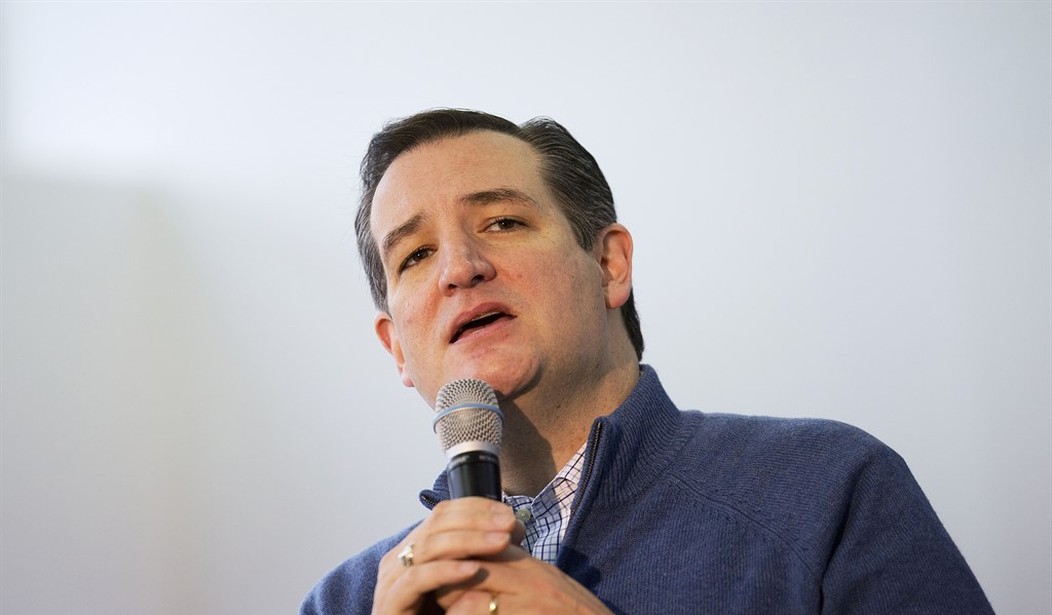With the first real votes being cast in the presidential race Monday, this is an opportune moment to do some last-minute comparison shopping on the candidates' tax reform plans. On this issue there's a lot to cheer about. All the Republican candidates have crafted plans that would slash tax rates for everyone and most would vastly simplify the thousands of pages of IRS tax code.
Ted Cruz and Rand Paul have endorsed flat-tax plans that, for full disclosure, were designed by Arthur Laffer and myself. These plans have drawn some criticism from the Right of late, though these attacks are mostly baseless.
Ben Carson wants a low-rate flat tax, too, and he would heroically eliminate all special interest deductions and carve-outs. Mike Huckabee is pushing a national sales tax to entirely replace the income tax. Jeb Bush, Chris Christie, John Kasich and Donald Trump want to cut personal income tax rates 20 percent to 25 percent while eliminating indefensible loopholes.
One common goal of nearly all these plans is to turbocharge growth by dramatically lowering the business tax rate (now the highest in the world) and reducing the punitive double taxation of investment income. Most GOP plans would cut the corporate/business tax to 15 percent to 25 percent.
All of this contrasts sharply with the two Democratic candidate plans. Hillary Clinton and Bernie Sanders seem to be in a weekly bidding war to see who can raise tax rates the most. Clinton favors hiking maximum capital gains and personal income tax rates to the mid 40s or higher. Sanders said last week that he wouldn't go to a 90 percent tax rate, but anything below that seems to be fine by him.
The Tax Foundation has recently ripped both these plans, finding that they would lower business investment and cut middle-income pay by about 10 percent over a decade. Somehow, making the middle class poorer is supposed to strike a blow for equality. Since most of the rich who would be plucked are business owners and investors, wage and salary workers will suffer the collateral damage from the class warfare potshots.
Recommended
In short, wealth redistribution is not an economic growth or jobs program.
The sparks are flying on the Republican side over which tax plan works best for American workers. Marco Rubio is running attack ads slamming Cruz's flat tax as something Ronald Reagan would have opposed. He says that the Cruz plan is a European-style "value-added tax."
This is a bit of a scurrilous jab because almost all flat-tax plans have this type of business net income tax -- dating back to the Steve Forbes plan 20 years ago.
But it is hard to see why conservatives wouldn't be excited about what Cruz and Paul have put forward. It's what tax filers have been waiting decades for:
First, the Cruz/Paul plans would give America the lowest tax rates since the income tax was devised 100 years ago. For this reason, these plans are estimated by the Tax Foundation to grow the economy by a gigantic $2 trillion extra GDP per year after 10 years. That's exactly the opposite effect of the Clinton and Sanders plans.
Second, both the Cruz and Paul plans eliminate almost all deductions and credits -- which is how they get the rate so low. The IRS could be dramatically shrunk in size. Don't forget, when there are fewer deductions, there are fewer ways to cheat on your taxes. The lower the tax rate, the less incentive to cheat, which means greater voluntary compliance.
Third, because the Cruz and Paul plans are "border adjustable": Imports are taxed at the flat rate when they are brought into the U.S., but American products sold abroad are not taxed at all. This would level the global playing field for American manufacturers, tech firms and drug companies and bring these jobs scampering back home. Trump's tariff ideas could be put back on the shelf, and those who want "fair trade" should celebrate.
Rubio and his allies are charging that the flat tax that imposes a low tax rate on the broadest possible business tax base, which includes wages and salaries and benefits, will quickly rise from the teens to the twenties or even 30 percent.
What is ironic about these attacks is that those rates that Rubio imagines would still be lower than his own plan's income tax rate of 35 percent.
It's hard to imagine that the two most relentless anti-big-government crusaders in Congress, Rand Paul and Ted Cruz, have a secret tax plan to supersize the government.
Finally, here is why this is not a value-added tax like the ones in Europe. In Europe, the VAT has been an add-on tax to existing income and payroll taxes. The flat tax is a replacement for the corporate and payroll taxes.
Some conservatives complain that the tax is too efficient and will raise too much money. Liberals will try to raise the tax rates to finance even more spending. But no matter what the tax system, liberals always want to raise tax rates. Any new pro-growth tax system is subject to the same criticism. In other words, this is the argument to do nothing with our tax system and retain the mess of a tax code we have right now.
Rubio is right to advise that, with any flat-tax, Republicans should press for a supermajority-vote requirement in the House and Senate to raise the rate.
I'd take any of the GOP plans over the current tax laws. But it's hard to see how cutting individual tax rates from 40 percent and business taxes from 35 percent down to 17 percent or less isn't a big winner for the economy. The flat tax won't make America look like Europe; it will make America race past Europe and the rest of our competitors. That's conservative and pro-growth -- and fair.
COPYRIGHT 2016 CREATORS.COM

























Join the conversation as a VIP Member